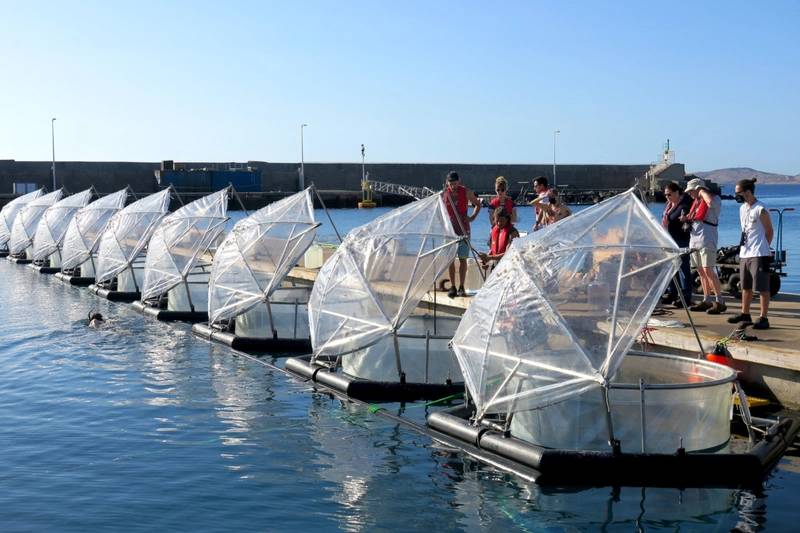One solution for mitigating increased CO2 levels is to accelerate and enhance the ocean’s natural uptake of CO2 by increasing its alkalinity. Ocean alkalinity enhancement mimics the natural process of rock weathering by adding ground rock, or its dissolution products, directly to the seawater.
So far, little is known about the effects of this method on marine life, but a study by the GEOMAR Helmholtz Centre for Ocean Research Kiel has now assessed the impacts of a moderate alkalinity application, showing that the effects on zooplankton are likely minimal and that the food web could remain stable.
The ocean naturally absorbs a quarter to a third of man-made CO2 emissions, but this process also leads to the acidification of seawater. By increasing the alkalinity of seawater through the addition of certain minerals (e.g., carbonates and silicates), the ocean can chemically bind more CO2 without further acidification.
Scientists from Prof. Ulf Riebesell´s group at GEOMAR Helmholtz Centre for Ocean Research Kiel, as part of the European OceanNETs project, conducted an experiment off Gran Canaria, Spain. Over a period of 33 days, the researchers monitored the effects of alkalinization on zooplankton, which plays a key role in transferring energy through the food web up to fish. A range of responses were studied in the zooplankton, from biomass and production to diversity and fatty acids.
The study adopted an approach with moderate perturbations to seawater chemistry: CO₂-equilibrated ocean alkalinity enhancement. With this approach, the alkalized water has already absorbed CO2 intended for carbon dioxide removal before being released to the marine environment.
For their experiment, the scientists used KOSMOS mesocosms (Kiel Off-Shore Mesocosms for Ocean Simulations) – large test tubes that are lowered directly into the seawater, isolating eight cubic meters of the water column.
Overall, they found that the plankton communities remained stable and that the zooplankton largely tolerated the moderate chemical changes.
The scientists recommend further research on the method and across different ecosystems.
The results are published in the journal Science Advances.

